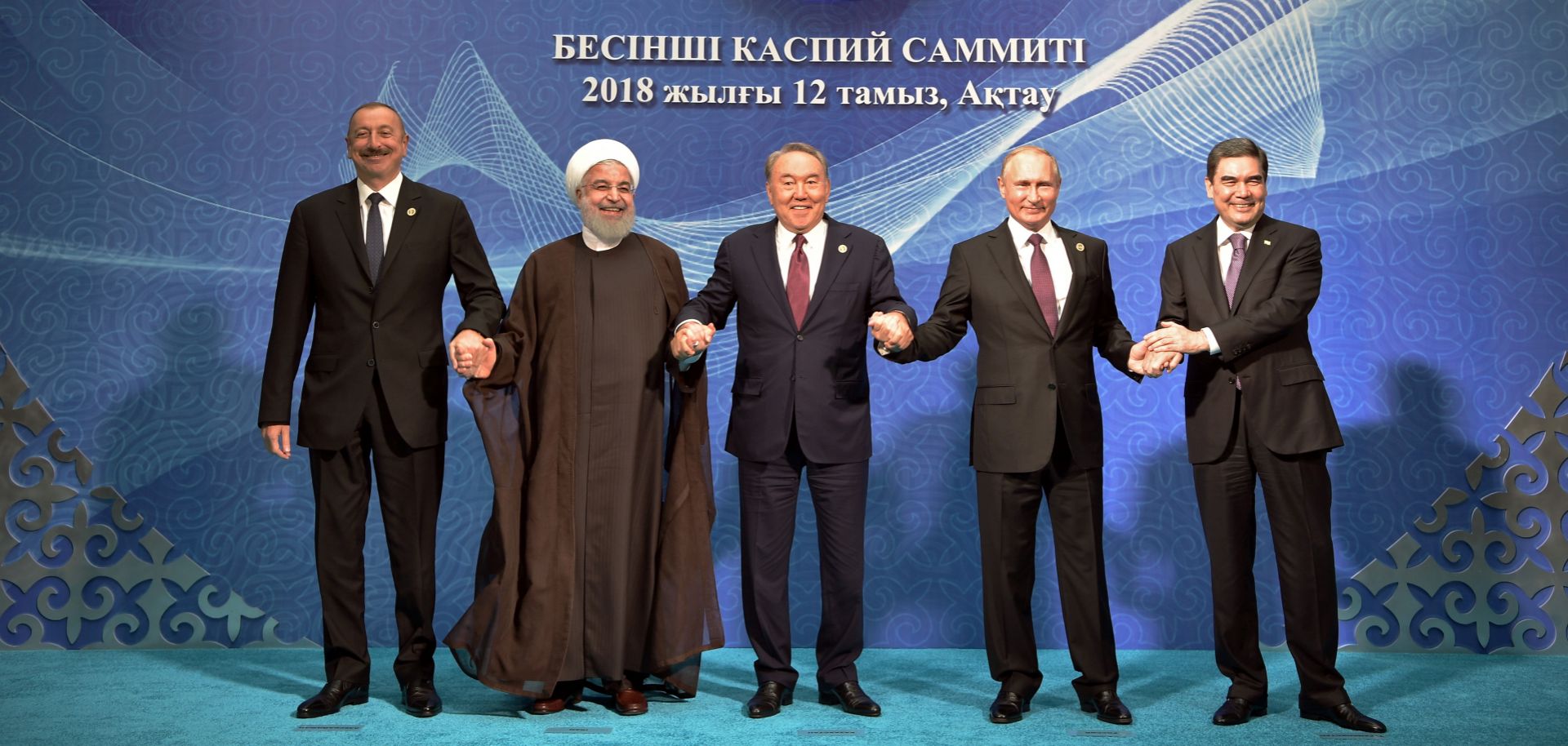ASSESSMENTS
What Does the New Caspian Sea Agreement Mean For the Energy Market?
Aug 17, 2018 | 09:00 GMT

(L-R) Azerbaijan's President Ilham Aliyev, Iranian President Hassan Rouhani, Kazakhstan's President Nursultan Nazarbayev, Russian President Vladimir Putin and Turkmenistan's President Gurbanguly Berdymukhamedov pose after the signing ceremony at the 5th Caspian Summit in Aktau on August 12.
(ALEXEY NIKOLSKY/AFP/Getty Images)
Highlights
- A landmark agreement signed between the Caspian Sea states of Russia, Azerbaijan, Iran, Kazakhstan and Turkmenistan is the culmination of over two decades of negotiations, but it won't resolve all the lingering issues between the countries.
- The division and distribution of energy resources within the Caspian Sea will remain a major sticking point, requiring further negotiations that Russia and Iran will seek to prolong.
- Russia, in particular, will work on the sidelines of the agreement to prevent projects like the Trans-Caspian Gas Pipeline from materializing and potentially compromising its energy market position in Europe.
Subscribe Now
SubscribeAlready have an account?
